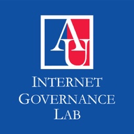By Kenneth Merrill
Cybersecurity experts from academia, industry, government, and civil society met at American University last week to discuss some of the key challenges and opportunities facing citizens, private enterprise, and policymakers as they wrestle with questions over how best to manage information security threats.
Hosted by the American University (AU) Center for Israel Studies, AU’s Internet Governance Lab, the American Associates of Ben-Gurion University of the Negev, The American University Washington School of Law, AU’s School of International Service, the Kogod School of Business, Kogod’s Cybersecurity Governance Center, and the AU School of Communication, the two-day conference drew on US-Israeli perspectives to address some of the most important cybersecurity issues facing citizens and governments in both countries and beyond.
How can cybersecurity and human rights coexist in the digital era? How should private and public entities in Israel and the United States work to prevent and respond to cybertheft while preserving innovation essential to economic growth and national security? What are the national policies of each country with respect to the protection of cyber infrastructure and the role of cyber operations in national security strategy? At the same time as these global cyber challenges emerge, the United States and Israel have two of the most robust and innovative cybersecurity industry clusters. What cooperation and collaboration is necessary to support the massive cybersecurity industries in these countries?
To begin to answer these questions the conference kicked off with a keynote address from Professor Yuval Elovici of Ben-Gurion University of the Negev’s Department of Information Systems Engineering and the director of the University’s Cyber Security Research Center. Titled “The Internet of Things: The New Frontier of Cyber Conflict,” professor Elovici’s remarks provided an accessible yet in-depth assessment of the state of play at the intersection of the Internet of things (IoT) and cyber security. Citing multiple examples of his research teams’ experimental approaches to testing various IoT security vulnerabilities, professor Evolici left many in the audience rightly concerned, as Internet-connected devices become increasingly embedded in our homes and lives.
On Tuesday morning the conference began with a networking breakfast and opening remarks by AU President Cornelius Kerwin. This was followed by four panel discussions, the first of which focused on Cybersecurity and Human Rights. “Cybersecurity is the great human rights issue of our time — human security depends on cyber security,” explained AU School of Communication professor and Internet Governance Lab co-director Dr. Laura DeNardis, who moderated the panel.
Left to right: professor Jennifer Daskal, Benjamin Dean, Michael Nelson, Eldar Haber, and Dr. Laura DeNardis.
Joining Dr. DeNardis were Washington College of Law professor and Internet Governance Lab Faculty Fellow Jennifer Daskal, Eldar Haber of the University of Haifa, Michael Nelson of Cloudfare, and Benjamin Dean of the Center for Democracy and Technology. Replying to a question from the audience regarding law enforcement access to data held outside the U.S. (even by U.S.-based companies, as in the recentMicrosoft/Ireland case), professor Daskal explained how approaches to jurisdiction that turn on physical location promote data localization, which paradoxically imposes local consequences on human rights.
Left to right: Stephen Thomas, Eli Ben-Meir, Yuval Elovici, and professor Erran Carmel.
The next panel saw Kogod School of Business professor Erran Carmel moderate a wide-ranging discussion titled “The Cybersecurity Industry”. Participants included Eli Ben Meir of CyGov and former chief of military intelligence research for the Israeli Defense Forces, professor Elovici of Ben-Gurion University of the Negev, and Stephen Thomas of Cyberbit, a cybersecurity company with offices in Israel and Austin, Texas. Highlighting the important role that Israel and the U.S. play as key nodes in the geography of cybersecurity and technological innovation, the panel discussed ways in which each country can learn from the other as governments and the private sector look to cultivate the next generation of cybersecurity professionals.
Following a networking lunch, the conference continued with a panel on “Cybertheft Prevention and Response” moderated by Washington School of Law professor Melanie Teplinsky. Professor Teplinski was joined by Rebekah Lewis of the Kogod Cybersecurity Governance Center, Jonathan Meyer of Shappard Mullin Richter & Hampton LLC, Ran Nahmias of Check Point Software Technologies, and Eric Wenger of Cisco. Together the panel discussed varying strategic approaches to thinking about cybersecurity in an environment where the volume of attacks and number of threat vectors continues to increase. The conversation sought to distinguish between headline-grabbing acts of cyberwar and espionage and the sorts of attacks that keep chief information security officers (CISO) and everyday users up at night.
Left to right: Eric Wenger, Rebekah Lewis, Ran Nahmias, Jonathan Meyer, and professor Melanie Teplinski.
The conference closed with a panel titled, “Cyber Security and National Security Policies — The U.S. and Israel,” moderated by AU School of International Service professor Eric Novotny. Joining professor Novotny were Amir Becker of the Israeli Embassy, Camille Stewart of Deloitte, and Lior Tabansky of the Blavatnik Interdisciplinary Cyber Research Centre at the University of Tel Aviv. Placing cybersecurity in a geopolitical context, the discussion allowed for a wide-ranging discussion of the national security implications for both the U.S. and Israel, as well as the impact that recent domestic political controversies could have on the global cyber order.
Left to right: Amir Becker, Camille Stewart, Lior Tabansky, and professor Eric Novotny.




